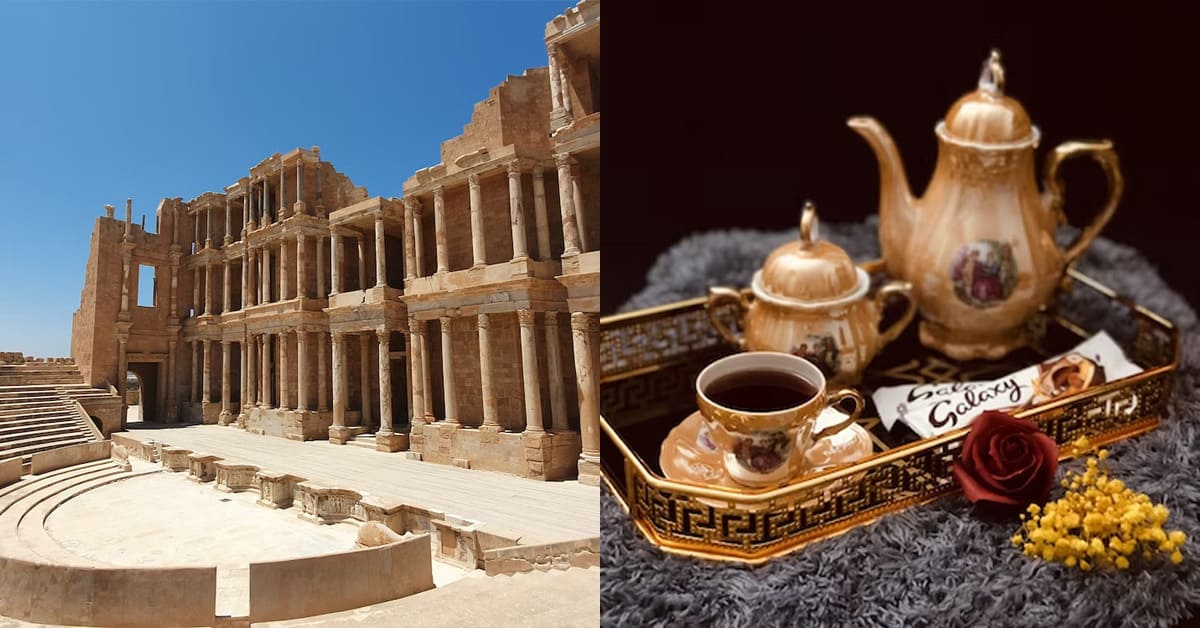Libyan cuisine is a blend of Mediterranean and North African flavors, influenced by the country’s history and geography. The cuisine is characterized by the use of spices, herbs, and vegetables, as well as meat and seafood. Libyan food is known for its simplicity and freshness, with many dishes featuring locally sourced ingredients.
The cuisine is also heavily influenced by Islamic dietary laws, with many dishes being halal. Libyan food is a reflection of the country’s rich cultural heritage and is a must-try for anyone visiting the region.
Libyan cuisine
Is Libyan food halal?
Yes, Libyan food is generally halal, as the majority of the population in Libya is Muslim and follows Islamic dietary laws. Pork and alcohol are not consumed, and meat is prepared according to halal standards.
However, it is always recommended to check with the restaurant or food provider to ensure that the food is halal.
What kind of food do Libyan eat?
Libyan cuisine is a blend of Mediterranean and North African flavors. Some popular dishes include:
- Couscous: A staple dish made from semolina wheat, vegetables, and meat.
- Shakshuka: A dish made from eggs, tomatoes, onions, and spices.
- Bazeen: A traditional Libyan dish made from a dough of barley flour and water, served with meat or vegetable stew.
- Harissa: A spicy paste made from chili peppers, garlic, and olive oil, used as a condiment or flavoring.
- Mloukhia: A stew made from the leaves of the jute plant, served with rice or bread.
- Grilled meats: Lamb, beef, and chicken are popular meats in Libyan cuisine, often grilled or roasted with spices.
- Dates: Libya is known for its high-quality dates, which are often used in desserts or eaten as a snack.
How can you tell if the food is halal in Libya?
In Libya, halal food is widely available, and most restaurants and food establishments will have a halal certification displayed. Additionally, you can ask the staff if the food is halal or look for the halal symbol on the packaging of pre-packaged food items.
It is also common for Muslims to ask for recommendations from other Muslims or consult with local Islamic organizations for guidance on halal food options.
Is it hard to find halal food in Libya?
No, it is not hard to find halal food in Libya as most of the population is Muslim, and it is widely available in restaurants and markets.
However, finding halal food options may be challenging in some remote areas. It is always recommended to check with locals or ask for recommendations to ensure that the food is halal.
Is Libyan food healthy?
Libyan cuisine is generally considered healthy as it is based on fresh ingredients such as vegetables, fruits, grains, and lean meats. Traditional Libyan dishes often include a variety of spices and herbs, which are known for their health benefits.
However, like any cuisine, the healthiness of Libyan food depends on the specific ingredients and cooking methods used. Some Libyan dishes may be high in fat or salt, so it is important to consume them in moderation.
What is Libyan food similar to?
Libyan food is similar to other North African and Middle Eastern cuisines, such as Moroccan, Tunisian, and Egyptian cuisine. It often features a variety of spices, herbs, and vegetables, as well as lamb, chicken, and seafood.
Some popular Libyan dishes include couscous, bazeen (a type of bread), shakshuka (eggs cooked in a tomato sauce), and harissa (a spicy chili paste).
Steps to find halal food in Libya
Here are some tips to find halal food in Libya:
- Research halal food options in Libya: Start by researching halal food options in Libya. You can use online resources such as Halal Trip or Zabihah to find halal restaurants and food options in Libya.
- Ask locals: Ask locals for recommendations on where to find halal food. They may be able to suggest restaurants or markets that serve halal food.
- Check food labels: When shopping for food, check the labels to ensure that the food is halal. Look for the halal certification symbol on the packaging.
- Visit halal restaurants: Visit halal restaurants in Libya to enjoy halal food. You can find halal restaurants in major cities such as Tripoli and Benghazi.
- Look for Muslim-owned businesses: Look for Muslim-owned businesses that serve halal food. These businesses may not have halal certification, but they may still serve halal food.
- Avoid non-halal food: Avoid non-halal food such as pork and alcohol. These foods are not permissible in Islam and should be avoided by Muslims.
- Ask for clarification: If you are unsure whether a food is halal or not, ask for clarification from the restaurant or store owner. They should be able to provide you with information on the food’s halal status.

